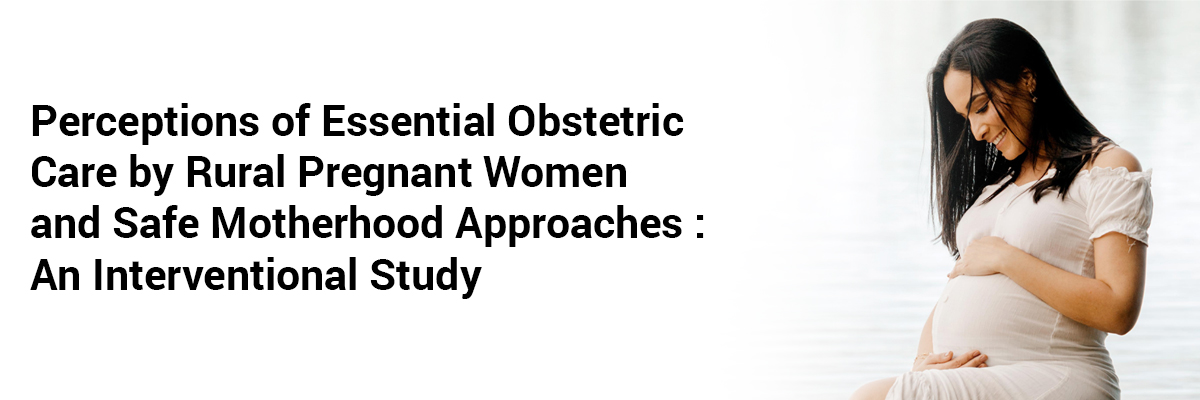
 IJCP Editorial Team
IJCP Editorial Team
Perceptions of essential obstetric care by rural pregnant women and safe motherhood approaches: An interventional study
A prospective interventional study was conducted to evaluate the level of awareness about Antenatal and Postnatal care in rural women and the need of appropriate interventions. Pregnant women (age 18–35years) willing to participate were included in the study of a government district hospital of Kerala and data collected over a period of 6 months in three phases: pre interventional, interventional, and post interventional phase.
In the first phase which was the pre interventional 89.8% of mothers were aware that vaginal bleeding is one of the danger signs of pregnancy. The awareness increased to 99.8% post intervention. They also became more vigilant and aware that other risks during pregnancy included convulsions (99%), severe abdominal pain (96.8%) and persistent headache with visual disturbances (98.4%).
Pre-invention, around 55% of women were not aware of any of the diseases related to pregnancy and it was observed that after intervention it decreased to 0.2%. Pregnant women were having enhanced awareness regarding pregnancy induced hypertension (99.2%), gestational diabetes (99.6%), gestational anemia (98.8%) and gestational epilepsy (96.2%).
After intervention the knowledge of Bacille Calmette Guerin (BCG), Hepatitis B, Polio, Diphtheria Tetanus toxoids Pertussis (DTP) increased by 98.4%,97.6%, 98.2% and 91.6% respectively. Pre-intervention 35.2% of the women did not know why any of these vaccines were given, but after intervention the value reduced to0.8%.
The study revealed that the knowledge and overall utilization of antenatal health services was good as almost two third of the study participants had utilized it. More focus is need to make women from rural areas utilize and avail free safe motherhood services across all public health facilities.
Source: Clinical Epidemiology and Global Health, April 2021, 11(1):100731

IJCP Editorial Team
Comprising seasoned professionals and experts from the medical field, the IJCP editorial team is dedicated to delivering timely and accurate content and thriving to provide attention-grabbing information for the readers. What sets them apart are their diverse expertise, spanning academia, research, and clinical practice, and their dedication to upholding the highest standards of quality and integrity. With a wealth of experience and a commitment to excellence, the IJCP editorial team strives to provide valuable perspectives, the latest trends, and in-depth analyses across various medical domains, all in a way that keeps you interested and engaged.






















Please login to comment on this article